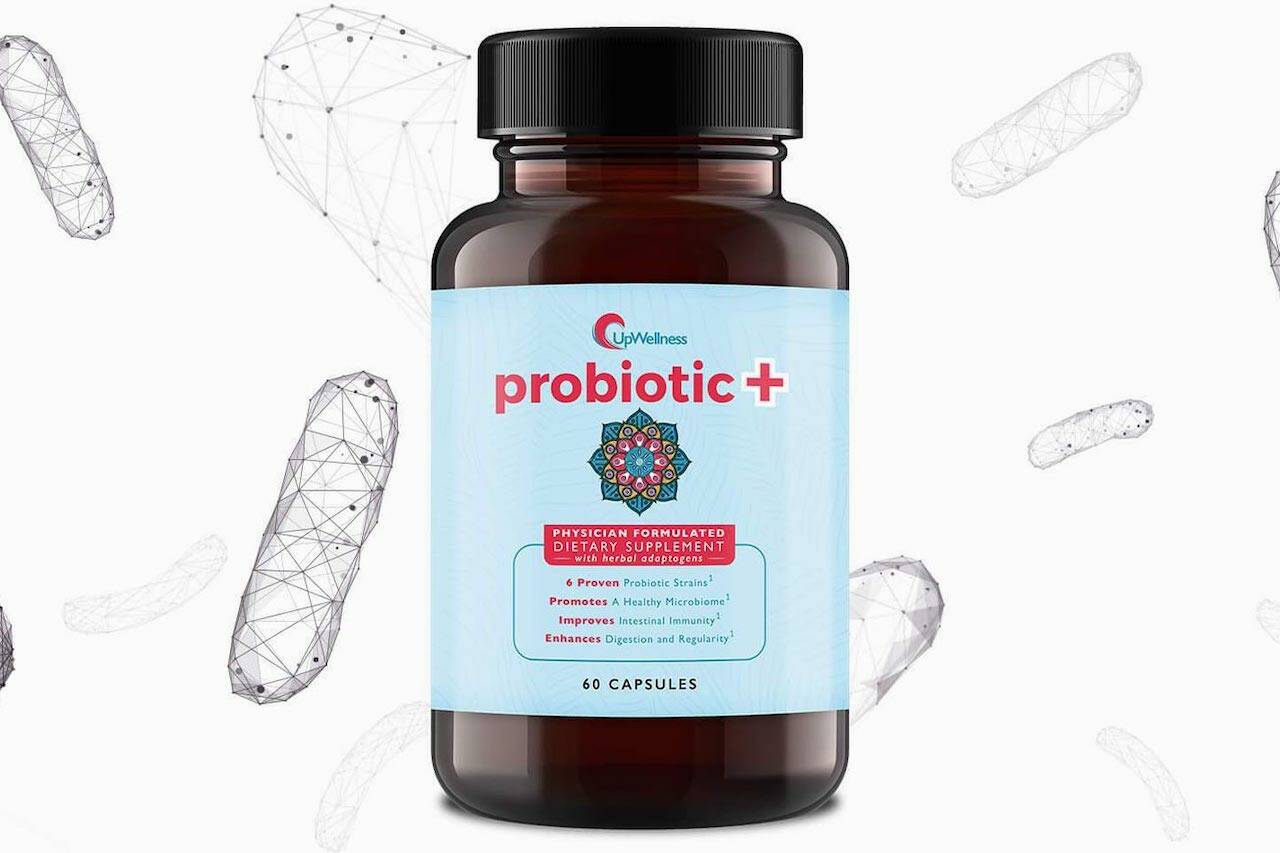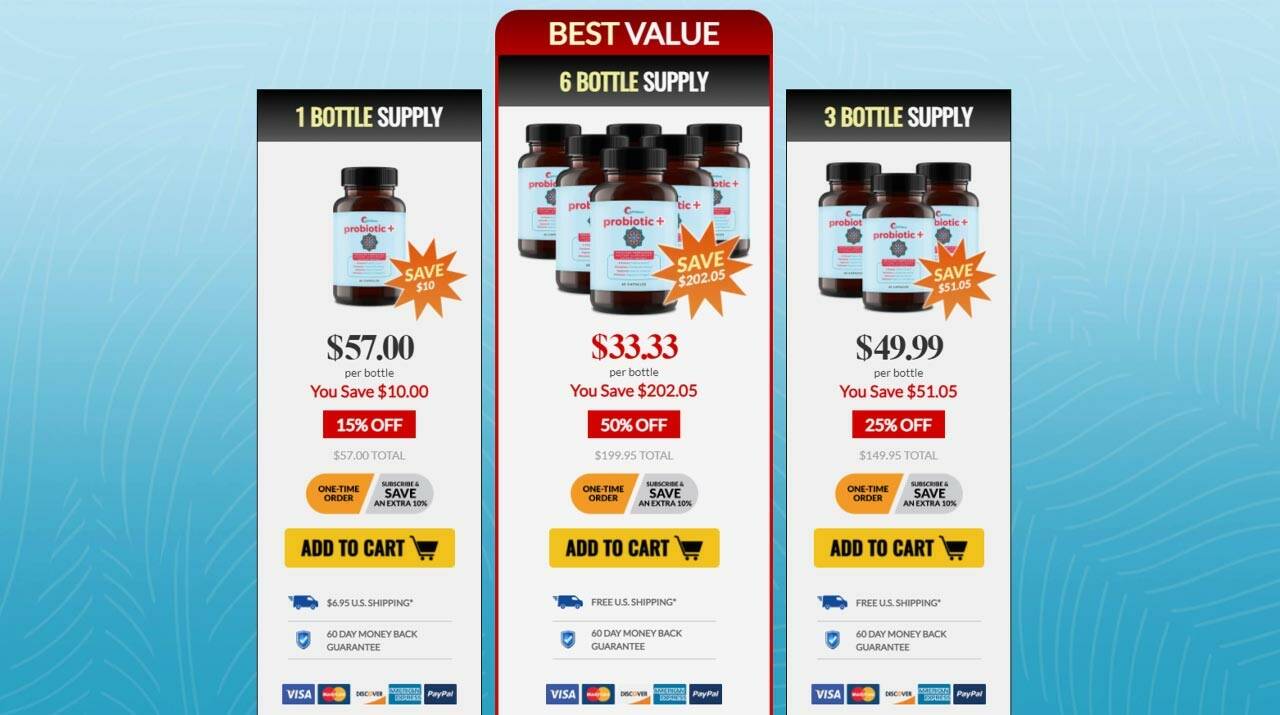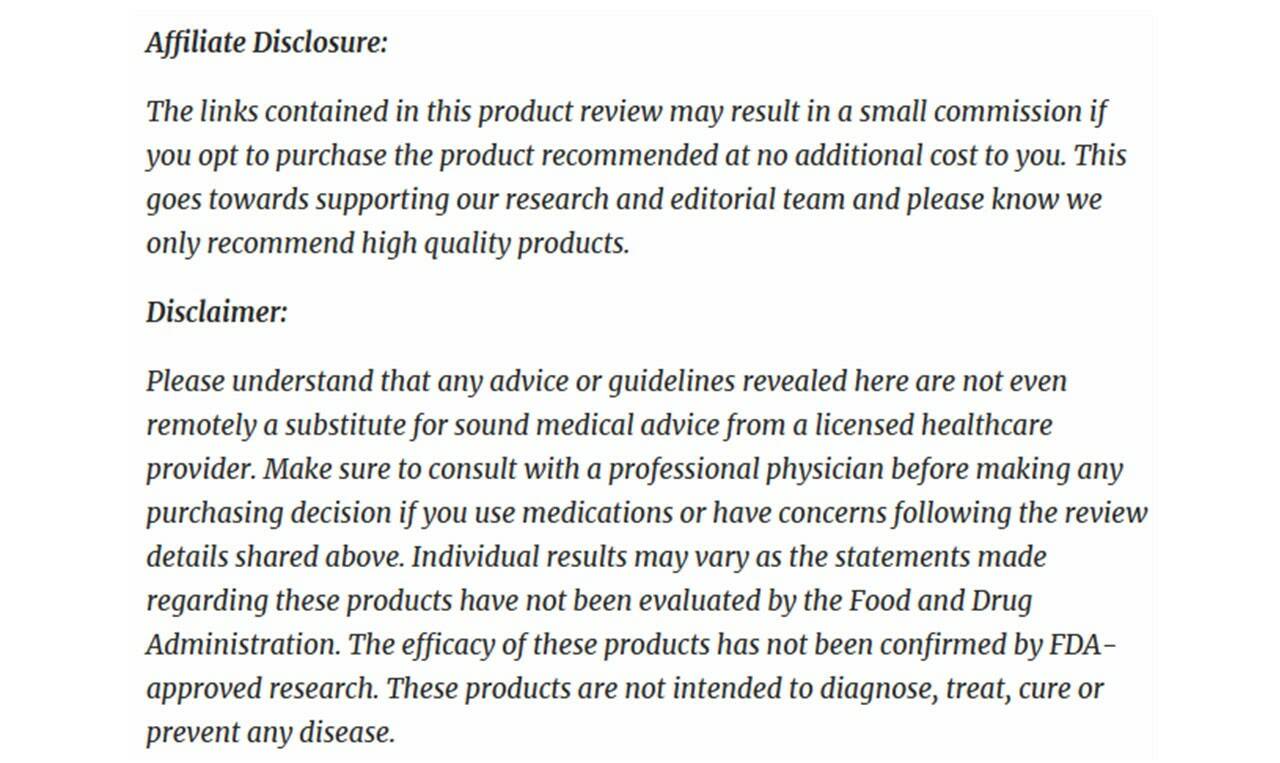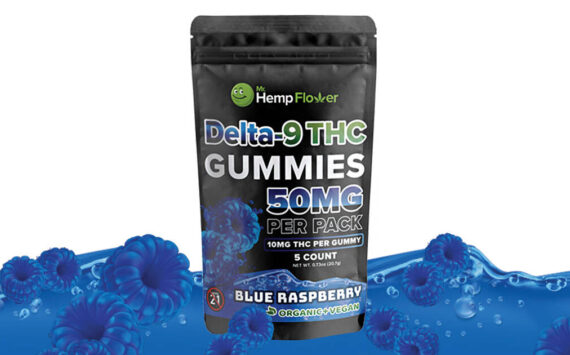Is the recurrence of constipation, diarrhea, heartburn, and/or bloating keeping you up at night? Can’t seem to wrap your head around the possible reasons why you might be feeling exhausted and/or sluggish? Well, based on these symptoms alone, one can conclude that one’s gut health may be compromised. The gut is a vital piece to the puzzle of wellness that must always be guarded.
Thankfully, the team at UpWellness understands the implications of poor gut health and has since released a supplement believed to fortify it. The following review aims to shine the spotlight on the deserving, “Probiotic+.” Here’s what our analysis suggests about its uses:
What is Probiotic+?
Probiotic+ is a dietary supplement claimed to deliver six proven probiotic strains. Together, these sources of good bacteria can strengthen the gut microbiome, improve intestinal immunity, and promote healthy digestion and regularity. Remarkably, this supplement is allegedly appropriate for people who have been fighting to put off fat while also requiring a support system that can limit variations in bloating, energy levels, and mood. To see what allows the addition of probiotic strains combined with adaptogenic superfoods to be accountable for wellness, we need to take a step back to assess the impact of the gut microbiome.
How does Probiotic+ work?
The Probiotic+ formula is built surrounding our gut microbiome, i.e., a home to microorganisms situated in the digestive system. As one piece explains, the gut microbiome plays a primary role in monitoring digestive processes and immune function. Individuals should see these bacterial cells as an army that stands face-to-face with harmful substances. Undoubtedly, any part of the body can easily become imbalanced, which applies to our gut. If the latter were to hold, then individuals are at risk of experiencing gastrointestinal conditions such as inflammatory bowel disease (IBD), irritable bowel syndrome (IBS), obesity, type 2 diabetes, and atopy, to name a few [2].
Physician Dr. Joshua Levitt (who also happens to be the face of Probiotic+) insists that “antibiotics have wreaked havoc on our immune systems for decades,” further noting that “[they] are used to fight off foreign invaders [and] they kill off your good bacteria too.” Remember the army-to-army visual from before? Now, imagine the bad players outnumbering the good. This is the perfect example of bacteria imbalance in the gut microbiome and, of course, its escalating consequences.
Nonetheless, Dr. Levitt contends that he formulated Probiotic+ with two goals in mind. First, to restore balance in the gut microbiome, and second, to support the body to respond to different stressors in the body properly. This is chief, as the body’s response influences how its components battle harmful toxins. Taking everything into account, let’s now fixate on the ingredients responsible for healing, maintenance, and perhaps, protection!
What ingredients are inside Probiotic+?
Earlier, we introduced the combined effects of probiotic strains and supporting ingredients with adaptogenic properties. Well, here they are:
Lactobacillus acidophilus (1 billion CFUs)
L. acidophilus is bacteria liable for breaking down carbohydrates, namely by breaking down sugar lactose from milk. Based on existing findings, ingesting this strain might help control certain diarrheas types while increasing good bacteria in the intestines. The first best step for people with a weakened immune system should be to consult a health practitioner before taking it [3].
Lactobacillus rhamnosus (1.5 billion CFUs)
Next, we have L. rhamnosus, a probiotic strain that is often realized in probiotic supplements. In terms of its usefulness, one-piece noted that it might perchance aid in treating colic in babies, prevent diarrhea and help lighten symptoms linked to irritable bowel syndrome, ulcerative colitis, and/or vaginal infections caused by bacteria. In addition, it has been considered as a treatment for Crohn’s disease, and lactose intolerance, even with lacking evidence in these two particular areas [4].
Lactobacillus plantarum (1 billion CFUs)
Known as lactic acid bacteria, L. Plantarum has garnered a lot of attention, especially from researchers. Its antioxidant, anticancer, anti-inflammatory, antiproliferative, anti-obesity, and anti-diabetic properties explain one team of researchers [5]. Regarding its benefits, researchers referenced other studies that described L. plantarum’s ability to potentially prevent the spread of ulcers byways of differentiating T-cells, and hence, improving immunity. It may also mend colon cancer by strengthening intestinal epithelial cells in immune responses.
Bifidobacterium bifidum (1 billion CFUs)
B. bifidum is a group of bacteria found extensively in the gut and stomach. One study that looked at the effect of this strain on gut inflammation caused by repeated antibiotic disturbances in mice concluded that its supplementation is applicable. What was stimulatingly illustrated was that the effect of B. bifidum depends on the level of damage imposed by the type of antibiotic considered. Still, the outcome was that some alleviation is likely experienced, which is uplifting [6].
Bifidobacterium breve (0.5 billion CFUs)
Found predominantly in the intestines, B. breve can help alleviate constipation, diarrhea, and IBS. After further research, we discovered a study that also found evidence in the context of fat loss. Specifically, the researchers reported that “the intake of B. breve B-3 slightly decreased triglyceride levels and improved HDL cholesterol from baseline [suggesting it as a] potential […] functional food ingredient to reduce body fat in healthy pre-obese individuals [7].”
Saccharomyces boulardii (0.5 billion CFUs)
Saccharomyces boulardii is a yeast trusted to treat certain types of diarrheas. Aside from easing diarrhea symptoms, this yeast/probiotic can be consumed to prevent nausea and necrotizing enterocolitis. Insufficient evidence on its effect on blood infection currently exists [8].
VitaFiber™ (40mg)
VitaFiber™ is advertised as a “high fiber prebiotic sugar alternative” with three grams of fiber per serving. As a prebiotic, it acts as fuel for probiotics, supports the digestive system, and can help good bacteria in upkeeping immune function [9].
Holy Basil (200mg)
Holy basil, or “tulsi,” is an Ayurvedic herb that encompasses growing evidence towards addressing different types of stressors (i.e., physical, chemical, metabolic, and psychological stresses, among others). In fact, one team of researchers insists that “Tulsi has also been shown to counter metabolic stress through normalization of blood glucose, blood pressure and lipid levels [10].”
Ginger (200mg)
Ginger is a spice used globally for culinary and medicinal reasons. Speaking of health benefits, this arises from the fact that ginger embodies anti-inflammatory, antioxidant, antitumor, and antiulcer effects, as reported in one systematic review. Other benefits include nausea relief and cancer and gastrointestinal disorders prevention [11].
Turkey Tail Mushroom (100mg)
Turkey tail mushroom is the last adaptogen to have cut. According to one source, it has been used for immune and liver protection. Factually, this respective mushroom is a Japanese staple used in cancer treatments and could help enhance digestion and defeat acute infections [12].
Frequently Asked Questions (FAQS)
What are CFUs?
CFUs stand for colony-forming units, which is a measure of the number of viable cells within probiotics.
Why are adaptogens important?
Adaptogens help the body respond to different types of stressors while tending to immune function, mental health, energy production, and overall performance.
Will Probiotic+ help with any medication problem?
This is a common question asked by consumers that need clarifying. As per Dr. Levitt, the short answer is possible, while the long answer is “because Probiotic+ is not regulated as a dietary supplement by the FDA, we are not permitted to make statements about its effect on special illnesses or diseases.” One good approach would be to sit down with a health practitioner to review the contents of Probiotic+.
Are all probiotic supplements created equally?
No, probiotic supplements aren’t created equally. However, Dr. Levitt attests that each serving of Probiotic+ reflects clinically studied doses for maximum results.
How should Probiotic+ be administered?
Individuals are directed to take one capsule per day with an adequate source of water.
Is Probiotic+ safe?
Probiotic+ is deemed a safe supplement because it contains studied doses of probiotic strains trusted to be free from adverse effects. Of course, the latter might vary depending on the ingestion of prescription medications, but this is yet another conversation to have with one’s respective health practitioner.
How does Probiotic+ help again?
Probiotic+ is argued as a feasible solution to enhancing digestion, immune function, and systemic health. The add-on of adaptogenic herbs is assumed to augment results while lessening mental health and other forms of discomfort.
What is the best way to store Probiotic+?
Probiotic+ is shelf-stable and does not need to be refrigerated to upkeep probiotic count.
Is Probiotic+ protected by a money-back guarantee?
Yes, Probiotic+ has been protected by a 60-day money-back guarantee. If individuals do not see or feel changes to their immune and digestive health, customer service must be informed of one’s desire for a refund before sending supplies back. To get started, here are crucial pieces of information to have handy:
- Email: info@upwellness.com
- Phone: +1 (800) 876 2196
- Return Address: UpWellness LLC, C/O Gulfshore Logistics, 14550 62nd St N-Unit 3, Clearwater, FL 33760
How much does Probiotic+ cost?
Probiotic+ has been manufactured to include anywhere between 30 and 60 servings depending on one’s digestive discomfort severity. That said, listed below is a price’s breakdown worth reviewing:
- 1 Probiotic+ bottle: $57 each
- 3 Probiotic+ bottles: $49.99 each
- 6 Probiotic+ bottles: $33.33 each
To buy the supplement is best to purchase Probiotic+ directly from the official website to avoid counterfeit products.
Introducing UpWellness & Dr. Joshua Levitt
UpWellness is the health supplements provider behind Probiotic+, with Dr. Joshua Levitt serving as the physician who conceptualized the formula. As a team, UpWellness defines “nutrients” uniquely. To be precise, nutrients don’t only stem from food but also physical activities, human interactions, and other positive lifestyle habits. Dr. Levitt, a specialist that harnesses the power of traditional medicine and modern science, shared the following:
“At UpWellness, we encourage you to make the kinds of diet and lifestyle choices that lead to a healthy body and a healthy microbiome […]. Many of the factors that damage the microbiome are entirely outside of your control. That’s why Probiotic+ is so critical. Taking one capsule every day gives you everything you need to keep your gut happy, healthy, and well balanced.”
Final Verdict
All-in-all, Probiotic+ is a dietary supplement proposed to keep the gut, immune and digestive functions pleased. In so doing, other benefits revolving around mental and cognitive functions are likely to unravel, showing how vital it is to care for gut function. Based on the supplement facts and existing research, all six probiotic strains and the included adaptogenic herbs serve a helpful purpose in this supplement. Matter-of-factly, what was initially perceived as a gut-enhancing formula, quickly took form as a complete wellness solution, a facet rarely witnessed in dietary supplements. In addition, having a naturopath dictate what goes into Probiotic+ is encouraging. How can anyone neglect the excess servings found per bottle, possibly supporting up to two month’s use? Bearing everything in mind, our editorial team sees value in this investment. To find out more about Probiotic+, click here! >>>






